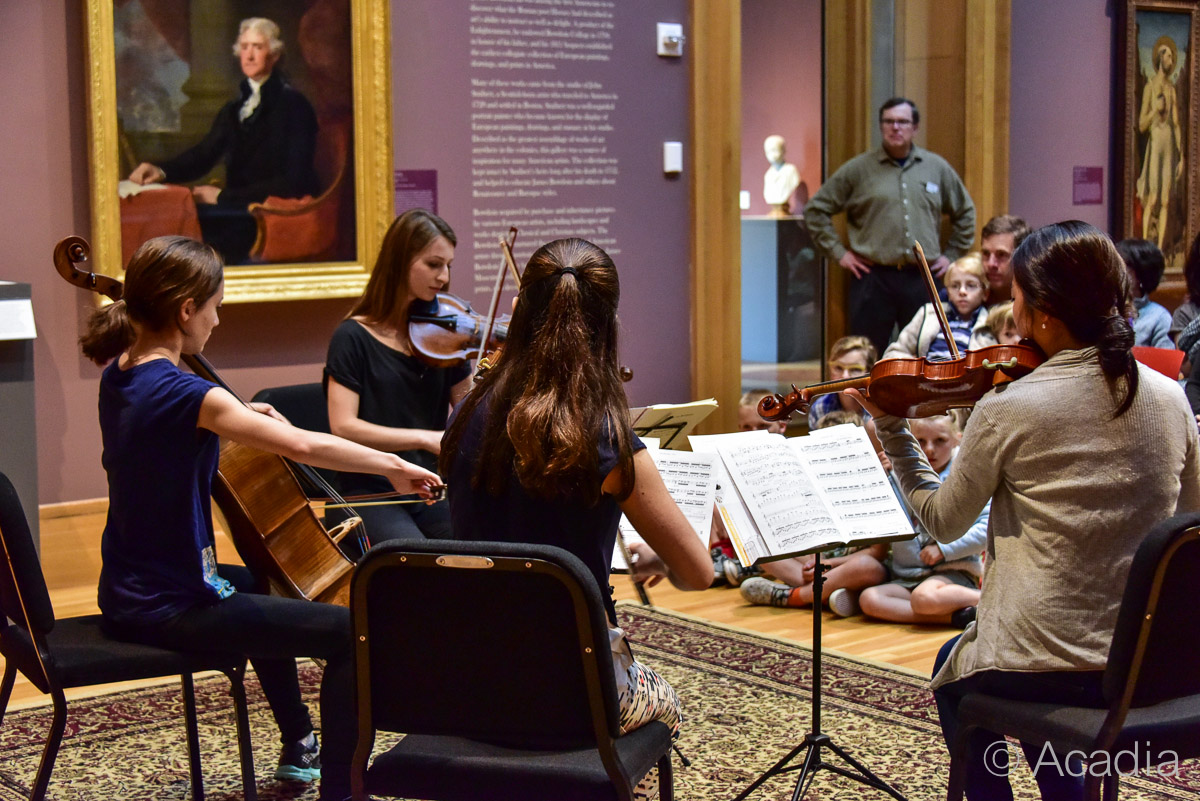Bowdoin International Music Festival makes a digital transition
May 1, 2020
 Courtesy Amezza Fonti
Courtesy Amezza FontiOn April 13, the Bowdoin International Music Festival, which brings together students and musicians from over 30 countries and 40 states, announced that it will cancel this year’s in-person masterclasses and performances due to the novel coronavirus (COVID-19) pandemic. In its 56 years of operation, this is the first summer that the festival will not run on Bowdoin’s campus.
As college campuses across the nation cancelled classes and summer activities, it became apparent to festival organizers that similar conversations were needed to address the festival’s summer programming. Daniel Nitsch, executive director of the festival, consulted recommendations from the state and federal governments, the Centers for Disease Control and Prevention and the College itself before coming to a final conclusion.
“There are as many factors as you can imagine in our decision,” said Nitsch in a phone interview with the Orient. “It had come after months of planning and analysis.”
“We are committed to making sure that the health and safety of our communities, wherever they may be, remain our first priorities,” added Phillip Ying, artistic director of the festival, in a phone interview with the Orient.
As hard as the decision to cancel in-person programming was, members of the administrative team have felt the support of the festival’s community as they prepare to redesign programming for a virtual format.
“Everyone from the most senior faculty member to the youngest student is disappointed,” said David Ying, artistic director of the festival, in a phone interview with the Orient. “And yet, there’s also been a universal sense of support for what we’re trying to do … and eagerness for us to meet again in 2021.”
The festival refunded tuition for all students, but it still paid some operating costs and will compensate for faculty members. Nitsch does not anticipate that the financial impact of this year’s cancellation will compromise the quality of future festivals.
“We are in a fortunate position to have a very strong and healthy financial infrastructure overall,’ said Nitsch. “We definitely consider ourselves fortunate to be able to weather this thanks to our loyal donor base.”
In lieu of on-campus programs, the festival will hold masterclasses better suited to an online format. Instead of playing instruments, classes will focus on analyzing pre-recorded pieces as a group. The festival will also revise its curriculum to include innovative lessons pertinent to social distancing, such as how to build a YouTube presence as a classical musician and the best recording equipment to buy on different budgets.
“The current state of technology is not at a level that can be a close substitute for what we do, so we’re just looking for ways to use current technology to keep us connected,” said Phillip Ying.
The Festival hopes to make many of these classes open for the public to join, not as participants, but as auditors.
In addition to adapting creatively to the remote model, the festival also plans to share archived videos of previous performances online. Depending on the recommendations for social distancing in June and July, musicians from similar areas might meet in smaller groups for livestream performances.
“When [the musicians] are together in the summertime, the energy is almost electric,” said David Ying. “We want to have a little bit of that by convening online, too.”
“There’s nothing like the real thing and being in Studzinski [Recital] Hall, live with the excitement of everyone else listening,” David Ying added. “But we hope to still capture a little bit of the flavor of us all being together, at Bowdoin in the summertime, through our online activities.”

Comments
Before submitting a comment, please review our comment policy. Some key points from the policy: